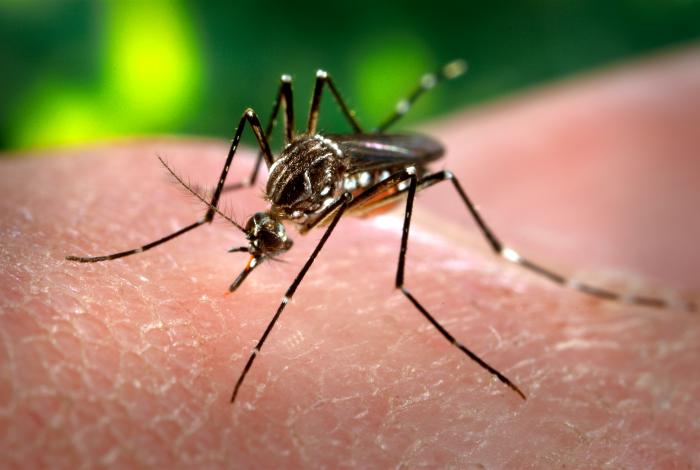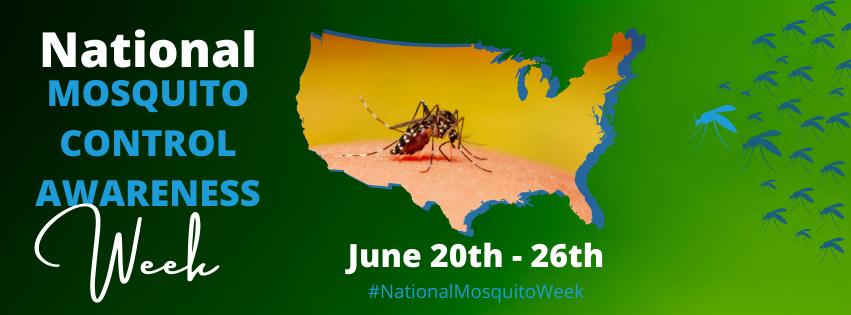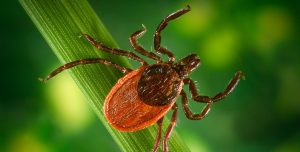The American Mosquito Control Association has designated June 20 – 26, 2021 as National Mosquito Control Awareness Week. Mosquitoes have been designated as the world’s deadliest animal due to their part in spreading vector-borne illnesses such as malaria, dengue, chikungunya, lymphatic filariasis, West Nile encephalitis, Zika, and yellow fever (Centers for Disease Control and Prevention [CDC] 2021a). Hence, combatting the growing issue of insecticide resistance in mosquitoes is of vital importance (CDC 2021b) as vector-borne disease prevention starts by controlling the vector and preventing mosquito-human contact.

Dr. Stephanie Richards (Professor and Program Director of the Master of Science in Environmental Health [MSEH] program at ECU), along with ECU undergraduate and graduate students, has been studying insecticide resistance in North Carolina mosquitoes of public health importance (Buday 2021). This research will help determine if mosquito populations around the state are becoming resistant to commonly used insecticides. MSEH graduate research assistant Melissa Nolan shares that her first week on the project had some interesting tasks. It turns out that both female and male mosquitoes are pollinators (National Wildlife Federation 2021). When female mosquitoes (only female mosquitoes blood feed) are not searching for a gulp of blood to drink, they can get energy from sugar water. When maintaining mosquito colonies, cotton balls soaked in sugar water must be refreshed periodically so mosquitoes have a water/energy source between blood meals. Female mosquitoes need blood to develop eggs. To maintain mosquito colonies in Dr. Richards’ lab, a device filled with medical grade bovine blood is warmed and covered with a penetrable layer which is set on netting on top of mosquito cages. About four days after blood feeding, mosquitoes are provided a substrate on which to lay their eggs. Mosquito eggs of some species (e.g., Aedes albopictus) can lie dormant (in humid but not wet conditions) for weeks/months. Once eggs are flooded with water, mosquitoes can go through larval and pupal development and become adults in about one week. Graduate student Melissa Nolan thinks that working with mosquitoes has made her much more aware of potential mosquito development sites in town, such as yards scattered with water-filled containers like buckets, tarps, and/or kiddie pools that are not dumped regularly. These types of standing water areas provide excellent egg laying and development sites for the world’s most dangerous animal. The public should dump out standing water regularly (at least once per week) to minimize mosquito production and protect public health.
MSEH graduate research assistant Melissa Nolan shares that her first week on the project had some interesting tasks. It turns out that both female and male mosquitoes are pollinators (National Wildlife Federation 2021). When female mosquitoes (only female mosquitoes blood feed) are not searching for a gulp of blood to drink, they can get energy from sugar water. When maintaining mosquito colonies, cotton balls soaked in sugar water must be refreshed periodically so mosquitoes have a water/energy source between blood meals. Female mosquitoes need blood to develop eggs. To maintain mosquito colonies in Dr. Richards’ lab, a device filled with medical grade bovine blood is warmed and covered with a penetrable layer which is set on netting on top of mosquito cages. About four days after blood feeding, mosquitoes are provided a substrate on which to lay their eggs. Mosquito eggs of some species (e.g., Aedes albopictus) can lie dormant (in humid but not wet conditions) for weeks/months. Once eggs are flooded with water, mosquitoes can go through larval and pupal development and become adults in about one week. Graduate student Melissa Nolan thinks that working with mosquitoes has made her much more aware of potential mosquito development sites in town, such as yards scattered with water-filled containers like buckets, tarps, and/or kiddie pools that are not dumped regularly. These types of standing water areas provide excellent egg laying and development sites for the world’s most dangerous animal. The public should dump out standing water regularly (at least once per week) to minimize mosquito production and protect public health.
Check out the American Mosquito Control Association’s Mosquito Prevention and Protection Fact Sheet for more information:
References
Buday, K (2021) ECU professor conducts research on mosquito insecticide resistance. ECU News Services. Accessed May 26, 2021: https://news.ecu.edu/2021/05/26/ecu-professor-conducts-research-on-mosquito-insecticide-resistance/.
Centers for Disease Control and Prevention (2021a) Fighting the world’s deadliest animal. Accessed on June 2, 2021: https://www.cdc.gov/globalhealth/stories/world-deadliest-animal.html.
Centers for Disease Control and Prevention (2021b) CDC bottle bioassay. Accessed June 4, 2021: https://www.cdc.gov/mosquitoes/mosquito-control/professionals/cdc-bottle-bioassay.html.
National Wildlife Federation (2021) What purpose to mosquitoes serve? Accessed June 4, 2021: https://blog.nwf.org/2020/09/what-purpose-do-mosquitoes-serve/
Public Health Image Library (2021) Accessed June 2, 2021: https://phil.cdc.gov/Details.aspx?pid=9258

*This article is contributed by MS Environmental Health student, Melissa Nolan.




